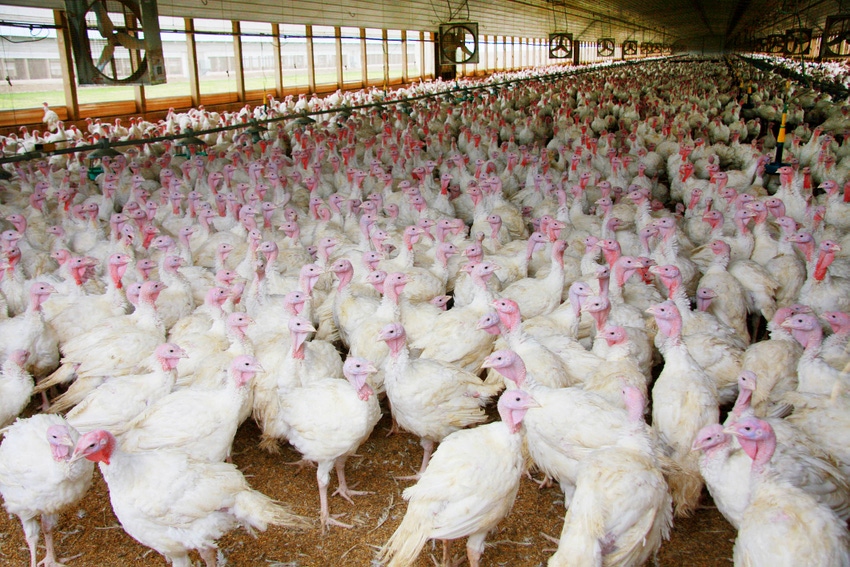Strain is not same virus that caused 2015 outbreak and does not pose risk to public health or food safety.
October 24, 2018

The Minnesota Board of Animal Health (MBAH) has confirmed a case of H5N2 low-pathogenic avian influenza (LPAI) in a commercial turkey flock in Kandiyohi County, Minn.
The disease was detected during routine surveillance testing of the flock of 10,000 thirteen-week-old turkey toms on Oct. 19, MBAH said. This farm includes an additional three barns housing 10,000 birds each, all of which have tested negative.
MBAH emphasized that this is not the same virus that was the cause of the highly pathogenic avian influenza (HPAI) outbreak in the Midwest in 2015.
H5N2 LPAI does not pose a risk to the public, and there is no food safety concern for consumers.
MBAH said it is working with all federal, state and industry partners to prevent the spread of the disease. Poultry producers are asked to maintain strong biosecurity practices at their facilities to isolate their flocks from outside sources of infection.
Tracheal swab samples were collected from turkeys and submitted to the Minnesota Poultry Testing Laboratory in Willmar, Minn. Tests identified the virus as an H5 influenza strain. MBAH quarantined the flock and sent samples to the U.S. Department of Agriculture's National Veterinary Services Laboratory (NVSL) in Ames, Iowa. The NVSL confirmed the presence of H5N2 LPAI virus of North American origin on Oct. 20.
MBAH said it has increased observation of the quarantined flock, watching for any signs of disease and has increased surveillance of commercial poultry operations within 10 km of the positive flock, all with negative test results. At this time, the affected flock is not showing signs of illness or mortality. The birds will be quarantined until they test negative for disease, at which time they will be controlled marketed.
California update
Meanwhile in California, a commercial turkey flock in Stanislaus County, Cal., experiencing some increase in mortality and respiratory symptoms submitted samples in early October to the California Animal Health & Food Safety Laboratory.
According to the California Department of Food & Agriculture (CDFA), the laboratory reported presumptive positive for H7 avian influenza on Oct. 9, and it was confirmed by NVSL as LPAI H7N3 on Oct. 11. This brings the total number of infected flocks in California to five: four commercial flock participants in the National Poultry Improvement Plan, and one flock not in the plan, CDFA said.
A surveillance zone of approximately 10 km has been established around the detection sites of LPAI. CDFA and USDA continue to work closely with poultry producers and veterinarians in the areas around affected premises to test other flocks for avian influenza and limit additional introductions and spread.
CDFA said the first three affected flocks were euthanized and disposed of to eliminate the virus and control the disease, but plans for the fourth and fifth affected flocks are being evaluated to determine the most appropriate way to stop further spread.
You May Also Like
.png?width=300&auto=webp&quality=80&disable=upscale)


